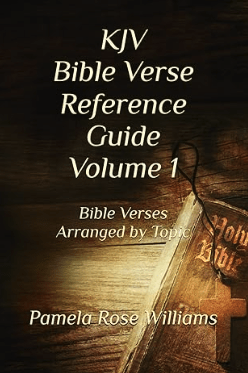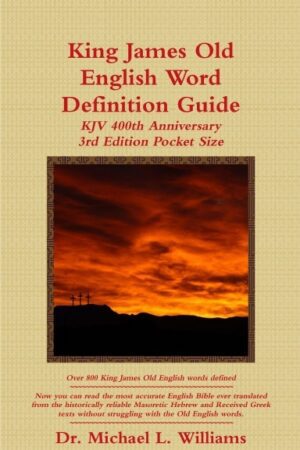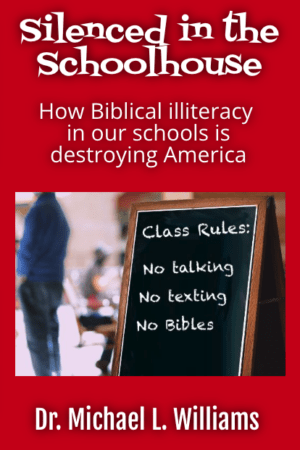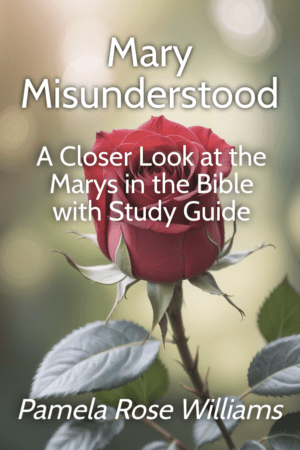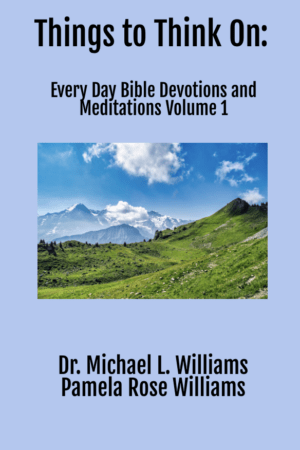What fruit will there be if the Word is sown in our heart?
Many Christians are familiar with the Parable of the Sower that Jesus taught to a multitude of people. He spoke of a sower, or farmer, that was sowing, or planting, seeds and the fruit each produced. By the end of His lesson, He challenged them to consider the Parable of the sower, and when the Word of God is sown like a seed to them what fruit will It produce? If we consider the parable of the Sower, what fruit will be brought forth if the Word is sown in our heart?
The Parable of the sower was preached by Jesus
The parable of the sower can be found in three places in Scripture. In Mark 3, Jesus had just been preaching and teaching when he left a synagogue where He healed a man, and the religious authorities started conspiring how they could destroy Him. He left and a great multitude followed Him to the seaside and other places to whom He preached, healed many, and cast out demons. Other mentions of the parable are found in Matthew 13 and Luke 8.
Jesus ordained disciples and those knowing Him reacted
Jesus called His disciples to come to Him and He ordained them to also preach, heal, and cast out demons. As word spread about Him, His friends and distant relatives came to “lay hold on Him”, thinking “He is beside Himself” (Mark 3:13-21). Soon after, scribes came to where He was at from Jerusalem and accused Him of doing the miracles under the power of the devil (Mark 3:22-30).
Not long after, His close family, including HIs mother came and stood outside, calling out to Him. When told of His mother and brethren being outside and looking for Him (Mark 3:31-32), He responded as follows:
Mark 3:33-35. “Who is my mother, or my brethren? 34 And he looked round about on them which sat about him, and said, Behold my mother and my brethren! 35 For whosoever shall do the will of God, the same is my brother, and my sister, and mother.”
Jesus tells the parable to the crowd
We can see that in today’s terms, Jesus went viral. He had those that supported Him and those that criticized Him. But, beginning in Mark 4, it was at this point Jesus went back to teaching at the seaside from a boat close to shore to the multitude on the shoreline. He taught them many things by parables, saying things about His doctrine of Salvation and the Word of God. He started by telling them a parable about a sower, sowing seeds on four different types of ground as follows:
Mark 4:3-9. “Hearken; Behold, there went out a sower to sow: 4 And it came to pass, as he sowed, some fell by the way side, and the fowls of the air came and devoured it up. 5 And some fell on stony ground, where it had not much earth; and immediately it sprang up, because it had no depth of earth: 6 But when the sun was up, it was scorched; and because it had no root, it withered away. 7 And some fell among thorns, and the thorns grew up, and choked it, and it yielded no fruit. 8 And other fell on good ground, and did yield fruit that sprang up and increased; and brought forth, some thirty, and some sixty, and some an hundred. 9 And he said unto them, He that hath ears to hear, let him hear.”
The parable explained
When we look at what Jesus taught, it is clear as He, the Sower, sowed the seed on different areas of ground, different things happened to the seeds in Mark 4:4-8.
- In Mark 4:4, He told how seeds were sown by the wayside, meaning they were laying out in the open in an area that was not be protected by the soil and the seeds were trampled on by people (mentioned in Luke 8:5). Birds in the area came and ate the seeds so none of the seeds grew
- In Mark 4:5-6, He told of how seeds were sown on stony ground, and although the seeds sprouted, their roots were exposed and above the ground. This allowed the heat of the sun to scorch the tiny roots, and the sprouts lacked moisture, so they withered away (see also Luke 8:6)
- In Mark 4:7, He told of how seeds were sown among thorns and the thorns grew up and choked the plants so they could not bear fruit
- In verse Mrk 4:8, He told of how seeds were sown on good ground and yielded fruit and increased the harvest as much as 100 times
- In verse Mark 4:9, After telling the parable, Jesus said (“cried” out in Luke 8:8), “He that hath ears to hear, let him hear.”
Later when Jesus was alone the disciples asked Him about what the parable meant. He explained to them what it meant and who would or would not understand it as follows:
Mark 4:11-13. “And he said unto them, Unto you it is given to know the mystery of the kingdom of God: but unto them that are without, all these things are done in parables: 12 That seeing they may see, and not perceive; and hearing they may hear, and not understand; lest at any time they should be converted, and their sins should be forgiven them. 13 And he said unto them, Know ye not this parable? and how then will ye know all parables?”
In verse 11, we see here that Jesus was telling them that the parable is given to them to know the mystery of the kingdom of God. However, He also makes the distinction that there are others “without,” that don’t know or care about the kingdom or Word of God, so the discussion was done in parables. Jesus gave many more details about parables in a similar passage in Matthew 13:10-17 as follows:
Matthew 13:10-17. “And the disciples came, and said unto him, Why speakest thou unto them in parables? 11 He answered and said unto them, Because it is given unto you to know the mysteries of the kingdom of heaven, but to them it is not given. 12 For whosoever hath, to him shall be given, and he shall have more abundance: but whosoever hath not, from him shall be taken away even that he hath. 13 Therefore speak I to them in parables: because they seeing see not; and hearing they hear not, neither do they understand. 14 And in them is fulfilled the prophecy of Esaias, which saith, By hearing ye shall hear, and shall not understand; and seeing ye shall see, and shall not perceive: 15 For this people’s heart is waxed gross, and their ears are dull of hearing, and their eyes they have closed; lest at any time they should see with their eyes, and hear with their ears, and should understand with their heart, and should be converted, and I should heal them. 16 But blessed are your eyes, for they see: and your ears, for they hear. 17 For verily I say unto you, That many prophets and righteous men have desired to see those things which ye see, and have not seen them; and to hear those things which ye hear, and have not heard them.”
As Jesus answered them, He mentioned a prophecy of Isaiah. This prophetic vision He mentioned was in Isaiah 6:1-12 about preaching the truth to a people that hear and see Him, but they are oblivious to the truth in Isaiah 6:5-12 as follows:
Isaiah 6:5-12. “Then said I, Woe is me! for I am undone; because I am a man of unclean lips, and I dwell in the midst of a people of unclean lips: for mine eyes have seen the King, the LORD of hosts. 6 Then flew one of the seraphims unto me, having a live coal in his hand, which he had taken with the tongs from off the altar: 7 And he laid it upon my mouth, and said, Lo, this hath touched thy lips; and thine iniquity is taken away, and thy sin purged. 8 Also I heard the voice of the Lord, saying, Whom shall I send, and who will go for us? Then said I, Here am I; send me. 9 And he said, Go, and tell this people, Hear ye indeed, but understand not; and see ye indeed, but perceive not. 10 Make the heart of this people fat, and make their ears heavy, and shut their eyes; lest they see with their eyes, and hear with their ears, and understand with their heart, and convert, and be healed. 11 Then said I, Lord, how long? And he answered, Until the cities be wasted without inhabitant, and the houses without man, and the land be utterly desolate, 12 And the LORD have removed men far away, and there be a great forsaking in the midst of the land.”
Jesus was explaining how there were two groups of people. One group was open to hearing the truth about the kingdom of God. The other group did not want to hear anything about it because they have cold hearts and don’t want to listen or care enough to pay attention. In other words, they don’t have any real interest in knowing anything about the kingdom of God and His Word. This was the purpose of using a parable to create a practical example of how the Word of God is shared and received.
The parable’s effect on the hearers
In both of these passages from Isaiah and the parable, there is a discussion of the Word of God going out, but that there are people that don’t really care to listen because their minds are so full of other things that they care more about. Therefore, the parables are illustrative passages for those that are interested to understand. For those not interested, it will not make any sense to them.
The prophecy in Isaiah also ends in verse 13 saying that a small remnant will hear these words and return, wanting to know more and be fed by the Words of God. He compares it to people who return to trees in the fall when leaves are falling to eat Oak tree seeds like acorns and Teil tree clusters of fruit like nuts:
Isaiah 6:13. “But yet in it shall be a tenth, and it shall return, and shall be eaten: as a teil tree, and as an oak, whose substance is in them, when they cast their leaves: so the holy seed shall be the substance thereof.”
Simply stated, Jesus was saying that most people will have no understanding of the parables, because they do not hunger for a relationship with God and don’t want to hear anything related to God’s Word.
Four groups of people that hear the parable
Jesus goes on then to describe the seeds the Sower sews and how they impact each type of hearer as follows:
Mark 4:14-20. “The sower soweth the word. 15 And these are they by the way side, where the word is sown; but when they have heard, Satan cometh immediately, and taketh away the word that was sown in their hearts. 16 And these are they likewise which are sown on stony ground; who, when they have heard the word, immediately receive it with gladness; 17 And have no root in themselves, and so endure but for a time: afterward, when affliction or persecution ariseth for the word’s sake, immediately they are offended. 18 And these are they which are sown among thorns; such as hear the word, 19 And the cares of this world, and the deceitfulness of riches, and the lusts of other things entering in, choke the word, and it becometh unfruitful. 20 And these are they which are sown on good ground; such as hear the word, and receive it, and bring forth fruit, some thirtyfold, some sixty, and some an hundred.”
We see from this passage there are four situations where seeds are sown and how they impact four different groups of people:
- Seed number one, verses 14-15: Jesus mentioned seeds sown by the wayside from what He said in verse 4. This describes people that hear the Word, and Satan immediately takes away the Word that was sown in their hearts, as they do not believe it (Luke 8:12) and are not interested in being saved. These are people who immediately reject the truth and never want to hear it again. Their destiny is being sent to Hell to be with Satan.
- Seed number two, verses 16-17: Jesus mentioned seeds sown on stony ground from what He said in verses 5-6. This describes people that hear the Word and might even receive it with gladness and claim they believe it based on emotional reasons. But, then a short time later they go through something that adversely affects them, or they get persecuted and scandalized over something that the Bible teaches, so they get offended and reject it. They reject is because they did not believe to the saving of their soul (Hebrews 10:32-39). Their destiny is a being sent to Hell to be with Satan.
- Seed number three, verses 18-19: Jesus mentioned seeds sown among those experiencing thorny difficulties of life from what He said in verse 7. This describes people that hear the Word, and believe it, and get saved. However, they never grow or mature in their faith for a variety of reasons. It might be the cares of this world or something related to a lust for money, careers, or other things choke the word so that it does not produce fruit in their lives (See also Matthew 13:22 and Luke 8:14). They don’t regularly attend church or fellowship with other believers and seldom read their Bibles. Many times, they will get caught up in things and get convicted they should not be doing them. They will also often admit they need to do better and “get back to God” or “go to church”, but they are too preoccupied with the world to grow in their faith. Their destiny is Heaven, but their time on earth will be a constant struggle and not result in many rewards in Heaven.
- Seed number four. verse 20: Jesus mentioned the seeds sown on good ground and fertile hearts amongst those that want to learn the truth and embrace it in their lives from what He said in verse 8. They hear the Word and are genuinely glad to receive it. They develop a hunger to learn more and make it a habit to worship at a church; fellowship with other believers; and focus on loving and serving God and their neighbor as themself (Mark 12:29-31). Their life is filled with things of the Lord and they share the gospel with others to include raising their children to love God too. Their destiny is Heaven, and their time on earth will be a blessing to them and others no matter what struggles they encounter. Their testimony of how they lived their life will positively impact others for Christ too.
What can we learn from the parable?
There is much more that can be said about this parable, but Jesus went on to share the same lesson in other parables. In the parable we just studied referenced in Mark 4, He reinforced the truth of the parable in verses 20-29 about how, like a candle, we don’t hide the light of God’s Word in our lives. Instead, we live it for all to see and hear. Then as each day comes and goes, and we sow the seeds of God’s Word to everyone we can, we can look forward to a day when God comes to harvest the fruit His Word produced and take it home to Heaven.
Final thoughts
As we think about these Words that Jesus shared, let us consider in our heart how we can nurture the seed sown in our heart to grow and become like those that have received and become a sower of seed number four. May God bless us and help us to grow as we live out what the He teaches us as follows:
Psalms 34:4-8. “I sought the LORD, and he heard me, and delivered me from all my fears. 5 They looked unto him, and were lightened: and their faces were not ashamed. 6 This poor man cried, and the LORD heard him, and saved him out of all his troubles. 7 The angel of the LORD encampeth round about them that fear him, and delivereth them. 8 O taste and see that the LORD is good: blessed is the man that trusteth in him.”










